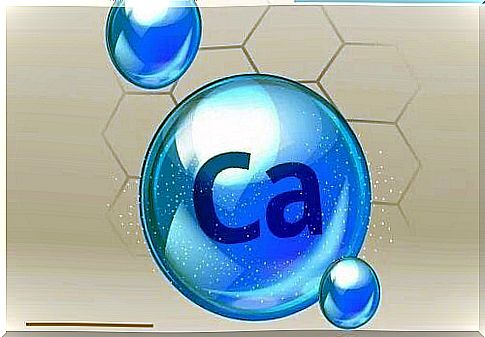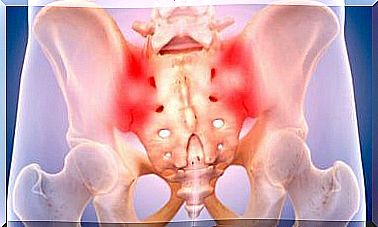Calcium Carbonate: Dosage And Precautions
Calcium carbonate is indicated to prevent and treat calcium deficiencies. It is also recommended as adjunct therapy in the specific treatment of osteoporosis.

Calcium carbonate is a chemical compound with the formula CaCO3. It is an inorganic salt that is very abundant in nature. You can find it forming rocks and as a major component of the skeletons of many organisms.
In general, a daily diet provides enough calcium. However, older women and men may need calcium supplements to keep their bones from weakening.
Indications of calcium carbonate

It is indicated to prevent and treat calcium deficiencies. It is also indicated as an adjunct therapy in the specific treatment of osteoporosis. Calcium carbonate is used in postmenopausal senile osteoporosis or derived from corticosteroid treatments. These patients are at high risk for calcium and vitamin D deficiencies.
However, it is also used in cases where this deficit is confirmed. Although under medical prescription, it is also used as a phosphate binder in patients with high levels of phosphate in the blood. Calcium carbonate is also indicated as an antacid to relieve heartburn, indigestion and upset stomach.
How to take calcium carbonate
Calcium carbonate comes in the form of chewable tablets. It is advisable to drink a glass of water after taking the tablet.
Calcium absorption takes place mainly in the upper part of the small intestine, up to 53% in people without problems. Elimination occurs through urine, feces and sweat.
The recommended dose for adults is 500 to 1500 mg of calcium per day. However, in children, the recommended dose for children is 500 to 1000 mg of calcium per day. If you forget to take a dose, you should not take a double dose to make up for the missed one.
Precautions before taking calcium carbonate

Before starting treatment, your doctor should know if you are allergic to calcium carbonate or to any other medicines. They also need to know if you are taking any other medications, whether prescribed or not. He should also know if you have or have suffered from kidney or stomach diseases, as well as if you have high levels of calcium in your blood or urine.
Likewise, you should tell her if you are pregnant or planning to become a mother, or if you are breast-feeding. During pregnancy, the daily calcium intake should not exceed 2500 mg, including food and supplements.
Interactions of calcium carbonate with other drugs
Calcium carbonate may interfere with the absorption of tetracyclines if taken at the same time. For this reason, tetracyclines should be taken at least 2 hours before or 4 to 6 hours after taking calcium carbonate.
Medicines containing bisphosphonates should be taken at least one hour before. Indeed, they reduce the antihypertensive effect of calcium antagonists.
Calcium may also decrease the effects of levothyroxine. For this reason, levothyroxine should be taken at least four hours before or four hours after.
The effects of some antibiotics, such as quinolones, may be reduced if taken at the same time as calcium. Therefore, the intake of quinolones should be separated two hours before or six hours later.
It also affects the absorption of iron, zinc and strontium ranelate. Separate outlets for at least two hours.
Possible side effects
Although side effects of this medication are not common, they can occur. These include:
- Stomach aches and pains.
- Vomiting
- Flatulence.
- Constipation.
- Dry mouth
- Metallic taste in the mouth.
- Loss of appetite
- Increased need to urinate.
- Itching and hives.
Milk drinker syndrome usually only occurs when high amounts of calcium have been taken with absorbable alkalis. In these cases, the symptoms are a feeling of urgency to urinate, headache, loss of appetite, nausea or vomiting, fatigue and weakness, high levels of calcium in the blood and kidney problems. .
Conclusion
Finally, calcium is an essential mineral for the human body. It is therefore important to maintain adequate levels throughout life to prevent osteoporosis. To achieve this, you have medications and supplements containing calcium carbonate. Do not hesitate to consult a doctor.









